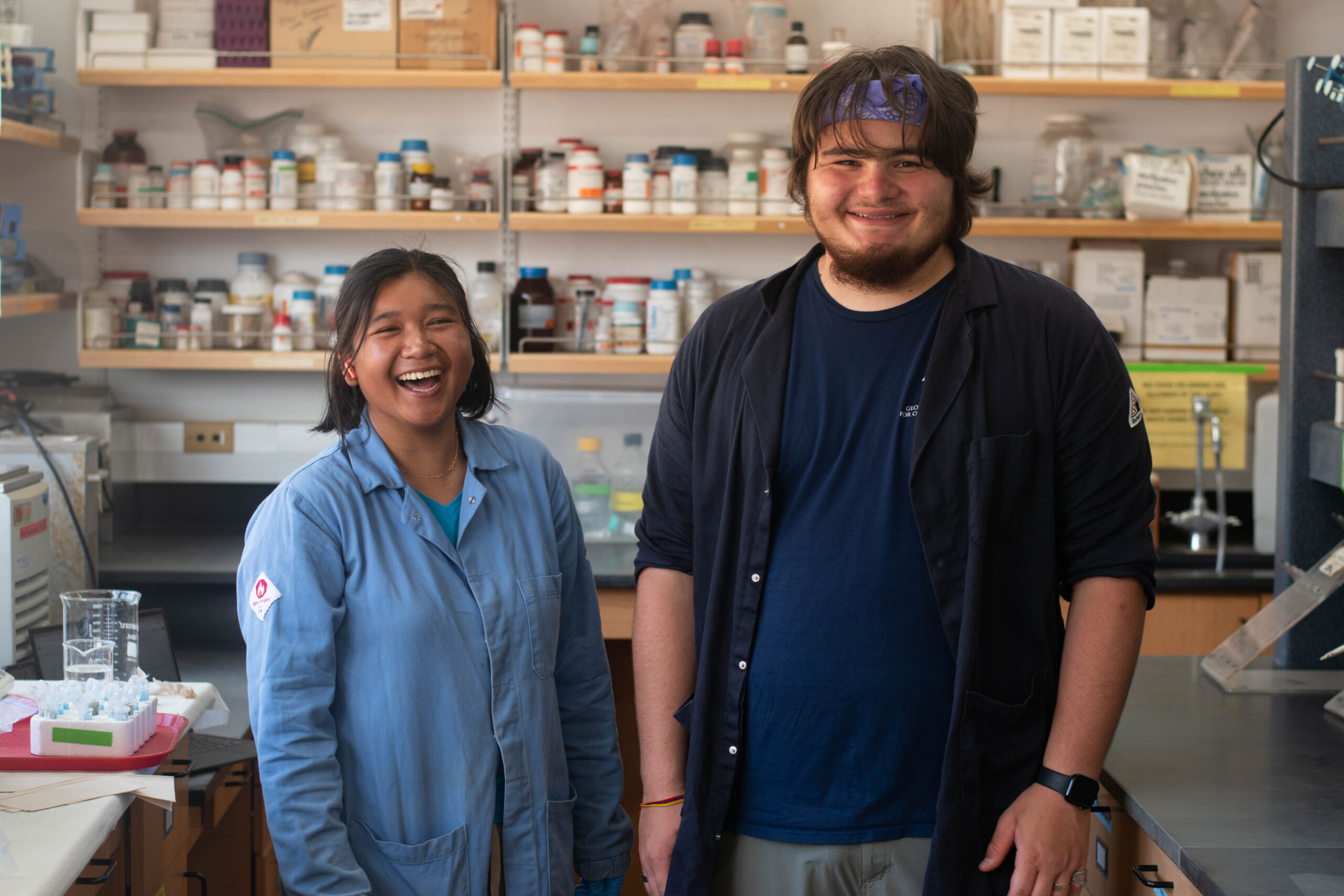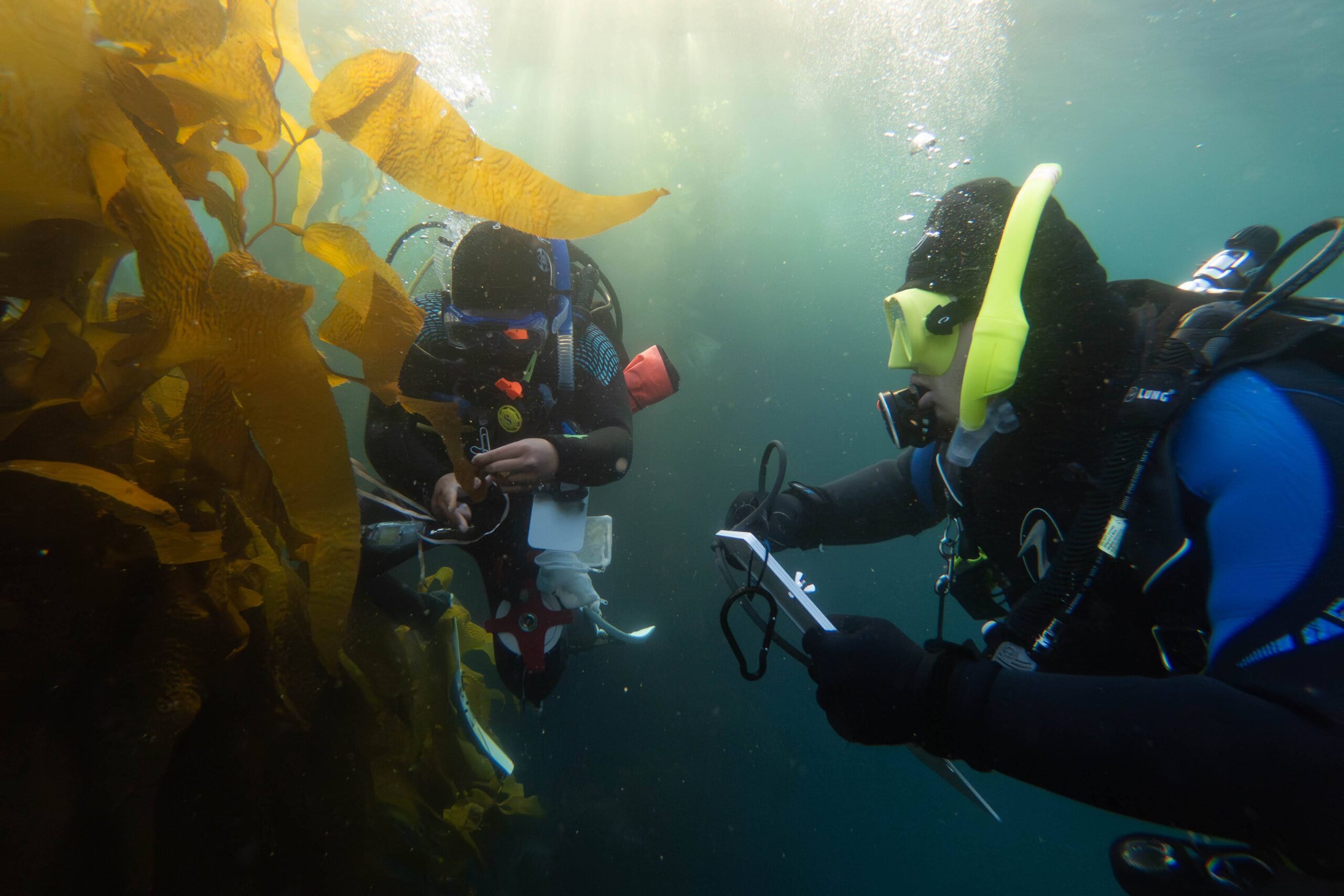Diving into a new research experience with giant kelp
My name is Miguel Sanchez, and I am a Naval Architecture and Marine Engineering student at Webb Institute in Glen Cove, New York. This summer, I was an undergraduate researcher in the 2023 USC Wrigley Institute REU program. My mentor this summer was Inessa Chandra, a graduate student of Professors Andrew Gracey and Sergey Nuzhdin at USC, and I was based at the USC Wrigley Marine Science Center on Catalina Island for the entire summer.
My story here begins at the beginning of the year, when I first learned about the program from a friend of mine. At the time, I was nearing the end of an engineering internship, which was really useful for my major, but didn’t allow me to use and explore any of my interests outside of that field. I am an avid SCUBA diver, and I have always had an interest in marine science. Several years ago, I combined the two and got certified for scientific diving. For the summer, I wanted to find something to do that I could use these skills for, and when I learned about the REU program, it seemed like a perfect fit.
When I arrived on the island, I immediately jumped in the water to start working and learned just how much I didn’t know about doing research. While I had previous experience with research diving and collecting, I had never gone into the lab to find out what happens after sample collection. This summer changed that. Going into my senior year, I have to conduct a yearlong research project in order to graduate and having minimal research experience seemed like a detriment. I thought this program would really help me understand what it’s like to tackle a problem like that effectively, and I can say that my experience this summer really helped me achieve that goal. I learned so many things about the research process, about the field I was working in, and about how to work in this kind of environment.

My project this summer looked at environmental effects on the nitrogen metabolism of giant kelp. Before this program, I had an extremely basic knowledge of phycology (the study of algae), and even before getting into the lab, it was really difficult just to absorb all of the information that I would need going into this project. I read a lot of papers, studies, and articles, and while they were hard to read, it was also a really interesting topic to learn about. The same was true about the technical aspect of the program. I hadn’t worked in a science lab since high school, and I had never done lab work to this degree of complexity at all. I enjoyed getting my hands dirty with all the different tools and machines that I needed to use, especially when I was able to get meaningful results from my work. Going into this program, I had a lot of worry that because I don’t come from an environmental or marine science major, I would fail at giving my project the understanding needed to come up with a good result. Luckily, both my mentor and the other students here with me really helped me learn what I needed to know so that I could give my project the respect it deserved.
My favorite part of this program was having the opportunity to step outside of my comfort zone and learning how to do something that I otherwise wouldn’t have without the exposure that this program gave me. I am an engineering student by trade, so I am really familiar with physical sciences and technical sciences, but this program touched on a branch of the sciences that is so far removed from my own as to be almost completely separate. Given that, I thoroughly enjoyed going through every part of this process, and I feel good knowing that I succeeded in my goal of opening myself up to something new. If someone is reading this, I can only assume that they are considering applying for an REU position, and to that I would tell them to do it. This experience has given me so much, and I have learned more than I ever thought I would. Being here has made me a better researcher and student, not only for environmental and marine science but for anything I could find myself doing in the future. I wholeheartedly feel that what I got out of this program will come in handy further down the line, and I think that anyone else who is interested in the program also deserves to feel that way.
P.S. Catalina is great and you’ll never want to leave ever again.

